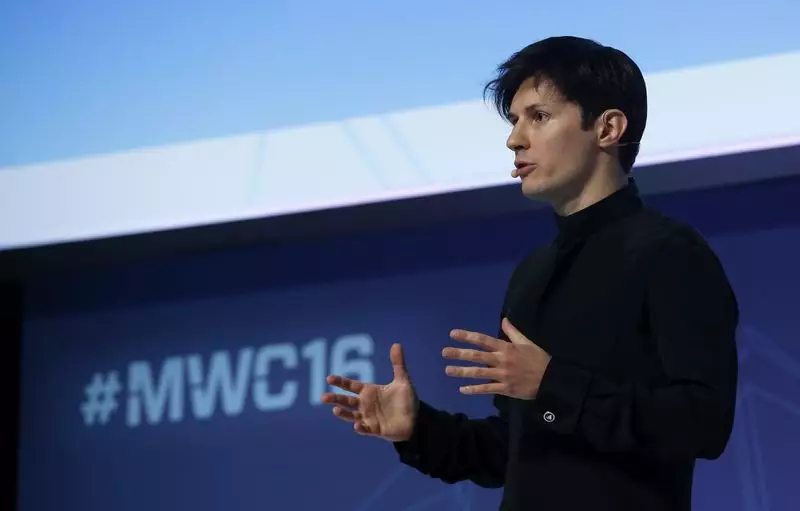The recent arrest of Pavel Durov, the billionaire founder and CEO of the popular messaging app Telegram, at the Bourget airport outside Paris has sent shockwaves through the tech world. Durov, who is particularly influential in Russia and the former Soviet Union republics, was reportedly targeted by an arrest warrant issued in France as part of a police investigation. This incident has raised concerns about the lack of moderation on Telegram, which authorities believe has allowed criminal activity to thrive on the platform.
Telegram, based in Dubai, is considered one of the major social media platforms globally, following giants like Facebook, YouTube, WhatsApp, Instagram, TikTok, and WeChat. With a goal of reaching one billion users in the next year, Telegram has gained popularity for its emphasis on privacy and security. However, the platform has also faced criticism for its role in spreading unfiltered and sometimes misleading content, especially during times of conflict such as Russia’s invasion of Ukraine.
Pavel Durov’s journey from founding the VK social media platform in Russia to eventually creating Telegram has been marked by conflict with governments seeking to control online discourse. Durov’s decision to leave Russia in 2014, following government demands to shut down opposition groups on VK, highlights his commitment to maintaining a platform for free expression. However, his recent arrest in France raises questions about the extent to which platforms like Telegram can truly remain neutral in the face of legal challenges and pressure from authorities.
Following Pavel Durov’s arrest, reactions from various parties have been swift and varied. While some Russian officials have accused France of acting undemocratically, others have expressed concern about the implications for online freedom. The Russian embassy in France has stated that it was not contacted by Durov’s team regarding the arrest, indicating a lack of communication and transparency in the situation. This incident underscores the complex interplay between technology, politics, and personal freedoms in the digital age.
As the situation continues to unfold, it is crucial to consider the broader implications of Pavel Durov’s arrest for the future of online communication and censorship. The case of Telegram and Durov highlights the challenges faced by tech companies operating in restrictive environments, as well as the ongoing struggle to balance freedom of expression with concerns about security and criminal activity. In an increasingly interconnected world, the role of platforms like Telegram in shaping public discourse and political dynamics cannot be underestimated.

